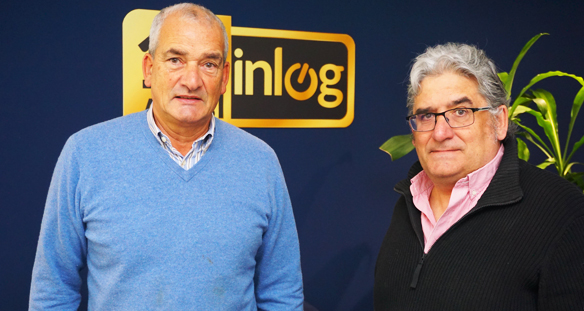We spoke with… Ponchi Ibarreche, who has more than 30 years of professional experience, 15 of which he has dedicated to helping companies improve their processes. In this conversation, Pontxi talks to us about the importance of analyzing processes in order to optimize them and thus achieve an improvement in the company.
Among others, you are dedicated to the industry sector, how receptive is the sector to ideas such as excellence, improvement, digitalization…?
In the end, my experience is based on knowledge, on access to companies that in theory are not large companies, but small companies in which there are no large structures to develop improvement projects or the implementation of new technologies. What they do is to take advantage of external knowledge, outsourcing those activities that they are not able to develop internally.
You have had the opportunity to lead one of the benchmark projects in Bizkaia in Industry 4.0. What is the key to the development of these projects?
The main key is the faith that the managers or heads of the companies have in the projects that are going to be started. And the second key is patience, that is, there is no project, there are no magic balls, there is nothing that can be solved in the blink of an eye, and what prevails, or what should prevail, when implementing any project is to have patience, believe in the project and be patient, and then accompany. And for me, the key is faith in the people who run the company. Then you have to focus a lot on making sure that the people involved have the right competence. Basically, that the people they have participate actively in the development of the projects. But right now, what is most important in development projects is that the person at the top believes in the project.
Sometimes it clouds our minds to manufacture a lot and manufacture fast, but which comes first: automate or systematize?
It is very clear that in the end new technologies cloud our vision and many times we think that technology solves our problems, when in the end our problems are not in the technology, but in our systems. Therefore, much of the work that we develop, or that I try to develop, with companies is to systematize, that is, to standardize processes and somehow define them so that they are the ones that make digitization or Industry 4.0 can be implemented. Trying to implement systems without having the processes more or less ordered and well organized is a chimera.
Thinking about SMEs, are there enough tools or support to encourage them to undertake these large-scale projects given their small size?
I think that in the Basque Country there is enough support for the development of projects, but sometimes I think that this support…. Sometimes the technology is rewarded more than the project. More thought is given to whether the technology applied is state-of-the-art than to whether the project is really profitable or not.
In my personal experience, we have always tried to work on processes and process improvement, and to ensure that new technologies accompany these improvements and achieve results. However, what I do see is that many times it seems that from the administration it is more about the flashy, the most immediate, rather than the effective improvement within the company.
Perhaps we are more focused on the short term and on assimilating technology to innovation. What would be the logical path before implementing a technology?
What is clear is that the first thing to analyze very well is the company’s situation from an operational point of view.
In fact, in all my projects I always start with the analysis of what I call flows, all the flows that appear within a company, whether they are the flows of processes, information, people, equipment, to see what degree of coordination there is between all the elements that participate in the production processes. And from this analysis we try to identify elements for improvement and always think that this is a long term path. And what you have to do is to have successes, small successes, so that in the medium or long term you can achieve results that are striking.
What are your next projects?
During the last five or six years I have had continuity in several clients and what that has allowed me is that the results have been seen over time. Right now we are working a lot in the area of programming and process simulation. We are seeing that, once you have these processes stabilized and optimized, one of the handicaps that you usually have when it comes to improving in a more efficient way is the programming part, which is usually very well attended, but lacks many resources.
My latest project right now is in a desalination filter company where we are working on a project to design their production program. And right now they are doing it with Excel, because as everyone knows, it is the tool that is best used in this world. We try to develop projects, in this case, a project oriented to facilitate that programming is not one of the bottlenecks in that process.






